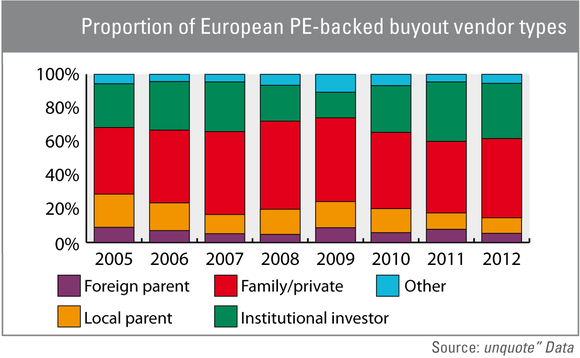
Corporate spin-offs still few and far between

Primary transactions tend to be harder to source across the board nowadays, but corporate spin-offs have proved particularly elusive since 2009: while deals sourced from a trade player accounted for nearly a fifth of European buyout dealflow that year, this proportion fell to less than 15% in the first half of 2012 according to unquote" data.
Latest News
Stonehage Fleming raises USD 130m for largest fund to date, eyes 2024 programme
Sponsor acquired the public software group in July 2017 via the same-year vintage Partners Group Global Value 2017
Stonehage Fleming raises USD 130m for largest fund to date, eyes 2024 programme
Czech Republic-headquartered family office is targeting DACH and CEE region deals
Stonehage Fleming raises USD 130m for largest fund to date, eyes 2024 programme
Ex-Rocket Internet leader Bettina Curtze joins Swiss VC firm as partner and CFO
Stonehage Fleming raises USD 130m for largest fund to date, eyes 2024 programme
Estonia-registered VC could bolster LP base with fresh capital from funds-of-funds or pension funds








